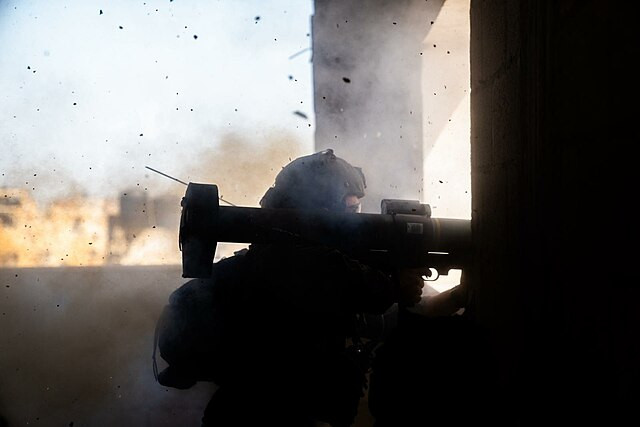Israel announced on Sunday the death of a senior Hamas commander in southern Gaza. Rafe Salama, head of the Khan Younis brigade and a close associate of Hamas military chief Mohammed Deif, was killed in the targeted strike. Salama was identified as one of the key figures behind the October 7 attacks on Israel.
While the elimination of Salama is confirmed, the status of Mohammed Deif, the primary target, remains uncertain. Israeli Prime Minister Benjamin Netanyahu acknowledged that the Israeli military is still verifying whether Deif was also killed in the strike. The Ministry of Health in Gaza reported that the attack resulted in at least 90 Palestinian casualties and injured 300 others in Al-Mawasi, a designated humanitarian zone.
The aftermath of the strike revealed scenes of devastation. Scott Anderson of the United Nations described the situation at a nearby hospital as "the most horrific scenes I have seen in my nine months in Gaza." The hospital, overwhelmed by the influx of casualties, struggled to provide adequate care amid the chaos.
Mohammed Deif, a shadowy figure who has led Hamas' armed wing for over two decades, is considered a major strategist behind the October 7 attacks. His potential death would mark a significant victory for Israel, given his elusive nature and the numerous assassination attempts he has previously survived. Deif's leadership has been crucial to Hamas' military operations, making his possible elimination a severe blow to the group.
In recent weeks, Israeli intelligence services have claimed the elimination of 25 Hamas operatives involved in the October 7 attacks. Ronen Bar, head of Israel's Shin Bet intelligence agency, commended the agency's intensified efforts in Gaza, highlighting the continued operations against Hamas leadership.
The conflict escalated further with an Israeli airstrike on a UN agency school in central Gaza, killing at least 15 and injuring over 100 others. The IDF stated that the strike targeted "terrorists" operating in the area of the school in Al-Nuseirat camp. Video footage from the scene showed bodies and injured individuals, some covered in rubble, being rushed to ambulances.
Hamas disputed the effectiveness of the Israeli operation, asserting that Mohammed Deif survived the airstrike and that cease-fire negotiations, mediated by international parties, are ongoing. Hamas spokesperson Jihad Taha acknowledged the impact of the attack on the negotiations but insisted that efforts to mediate a cease-fire continue.
If confirmed, the killing of Deif would represent the highest-profile assassination of a Hamas leader since the onset of the current conflict. Netanyahu emphasized that all Hamas leaders are "marked for death" and suggested that their elimination would facilitate a cease-fire agreement. However, Hamas maintains that communication channels remain open and active.
The strike has sparked outrage among survivors, particularly those who believed they were in a designated safe zone. Mahmoud Abu Yaseen, who lost his son in the attack, expressed his despair, questioning the safety of any location in Gaza. The family had been displaced multiple times since the war began, reflecting the precarious and dangerous conditions faced by many civilians.
Scott Anderson's account from Nasser hospital underscores the dire humanitarian situation. He described scenes of severe injury and inadequate medical supplies, exacerbated by restrictions on humanitarian aid. Children with life-altering injuries, including amputations and paralysis, were among the casualties.
Israeli Defense Minister Yoav Gallant praised the precision and effectiveness of the pilots involved in the strike. He asserted that Hamas' capabilities are being systematically dismantled, leaving the group unable to sustain its military efforts.
The conflict, ignited by Hamas' October 7 assault that killed approximately 1,200 people and resulted in over 200 hostages, has led to significant casualties. More than 38,400 people in Gaza have been killed in Israeli ground offensives and bombardments since the conflict began, according to Gaza's Health Ministry.
In a related incident, a Palestinian resident of East Jerusalem carried out a car-ramming attack in central Israel, injuring four Israelis before being shot dead by Israeli border police. Such attacks, noted Israeli police commissioner Kobi Shabtai, are often triggered by significant events like the recent airstrike in Gaza.




